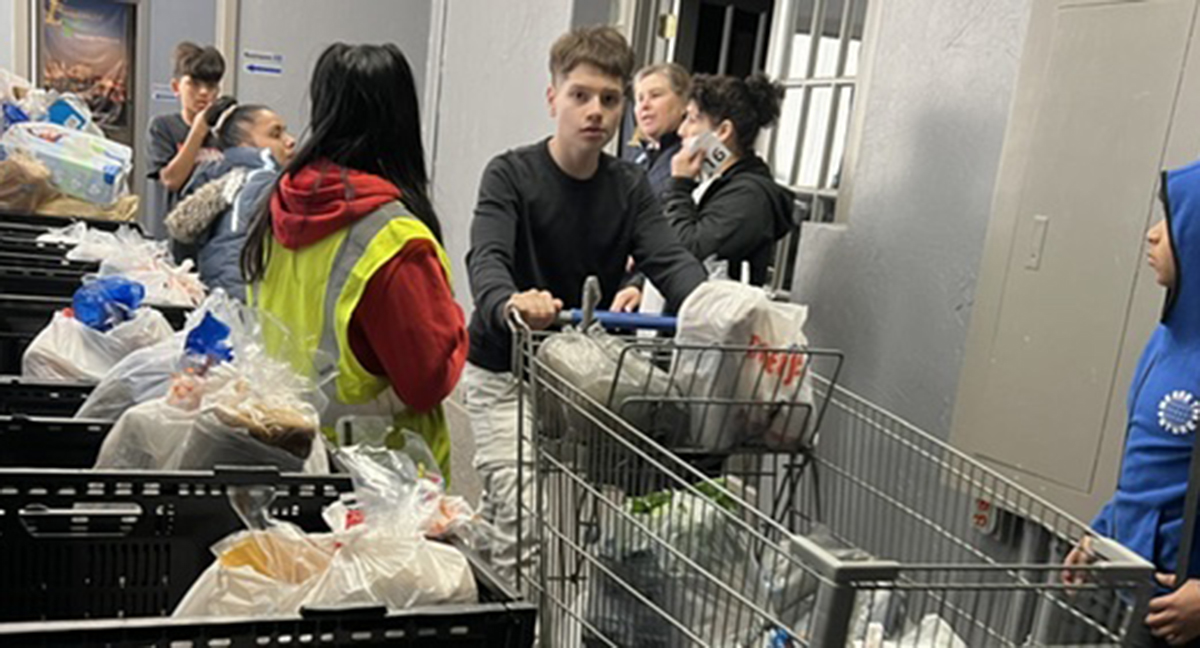When Merlin Gonzales, the president and CEO of Faith Hope and Love Community, Inc. (FHL), took a trip to Costa Rica, it changed his life.
Gonzales, a Noblesville resident, was touched by people in need and wanted to make a difference.
“My 10-day mission trip to Costa Rica changed my perspective on life,” he said. “I wanted to go back. However, money-wise and time-wise, I was not able to go back. I thought to myself, ‘Why not create opportunities for mission trips in our own backyard?’”
Gonzales put his ideas into action.
“I shared my vision to help the underserved in our own neighborhoods while mobilizing the residents in serving others,” he said. “In 2005 seven churches and over 120 local missionaries agreed to work together for a week of service. Before the end of that year, the pastors asked me to continue this local mission, but I told them I was done since it was supposed to be a one-time outreach.”
However, the pastors told Gonzales that everyone had a blessed experience and wanted to be a part of an annual mission.
“I was compelled to continue and start a nonprofit organization,” he said. “In 2006 I mobilized over 50 churches and businesses, and over 1,200 local missionaries who worked for the entire week of the mission. Several central-Indiana mayors proclaimed the week FHL Week, and encouraged their residents to join in serving others.”
Gonzales has been a resident of Noblesville since 2006, and has worked with Noblesville Mayor John Ditslear and numerous local churches in the past.
“The stellar growth in 2006 was attributed to creating area coordinators in five communities,” Gonzales said. “One of the area coordinators was a pastor at Bethel Lutheran Church in Noblesville who was encouraged to recruit local churches. I shared the vision with Mayor Ditslear, and he supported the cause with the proclamation of FHL Week in Noblesville, and as one of the speakers for the week of mission.”
After a few years, White River Christian Church became the area coordinator.
“Later on, the Noblesville-area churches decided to move their annual week of mission to June [from July],” Gonzales said. “This led to the creation of Serve Noblesville, which is now its own nonprofit organization. It’s been an honor to be a part of the history of Noblesville.”
FHL was founded in 2005. It has been serving Indiana, focusing on food insecurity and leadership development.
[Text Wrapping Break]“Ever since I founded FHL in 2005, I have been training and coaching leaders on how to identify needs, resources, create projects and recruit volunteers,” Gonzales said. “After a few years of incredible success, I saw that the annual local mission was becoming an event. I also saw that the success of the mission was dependent on me since I was the only staff for FHL. I do all the marketing, create procedures, etcetera. I wanted more.”
Gonzales wanted to create a sustainable mission that is not dependent on one organization, but rather focused on empowering local churches and organizations.
“This led me to identifying one of the basic human needs – food,” he said. “I started to give away food at street corners and partnered with churches and local organizations. Then, in 2009 a church asked me to train their congregation how to start a missional food pantry. The following year I trained a Boys & Girls Club on the east side. To date, FHL has trained over 50 organizations in establishing and sustaining missional food pantries. I call it a missional food pantry since the focus is people rather than food.”
Gonzales says this means that missional food pantries should establish relationships with the recipients, and find out more about other causes of food insecurity such as unemployment, technical training and addiction.
“These experiences led me to create the FHL Academy of Leadership and Transformation, offering an associate degree in community development and leadership,” he said. “The official launch was in April 2024.”
Gonzales also launched SALTview food access management software.
“As part of helping people beyond bags of food, the pantries we train refer the recipients to other community resources for a more sustainable lifestyle,” he said. “This means that we need to gather information that may help the pantry recipients – data. We have been using Excel to gather and record data since 2006. In 2015 I thought of creating software for efficiency, timeliness and accuracy of reporting.”





